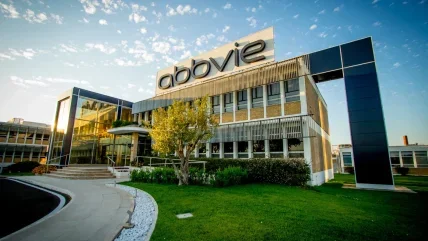
AbbVie announced the US Food and Drug Administration (FDA) approval of Vyalev (foscarbidopa and foslevodopa) for Parkinson’s disease (PD).
Vyalev, also known as Produodopa, will be used for the treatment of motor fluctuations in adults with advanced PD.
The drug is now said to be the first and only subcutaneous 24-hour infusion of levodopa-based therapy for this indication.
The FDA approval was supported by results from a Phase 3 M15-736 study, which assessed its efficacy in adults with advanced Parkinson’s disease.
The randomised, double-blind, double-dummy, active-controlled 12-week trial compared continuous subcutaneous infusion of Vyalev to oral carbidopa/levodopa (CD/LD IR).
It enrolled around 130 adults with advanced PD across 80 sites in the US and Australia.
Results showed that the drug significantly improved motor fluctuations, increasing on time (optimal symptom control) and decreasing off time (when symptoms return).
At week 12, the levodopa-based therapy increased on time without troublesome dyskinesia by 2.72 hours. Improvements were evident as early as the first week and continued throughout the 12-week study.
Most adverse reactions were mild to moderate, with common issues including infusion site reactions, hallucinations, and dyskinesia, occurring in over 10% of patients.
AbbVie chief scientific officer and research & development executive vice president Roopal Thakkar said: “People living with advanced Parkinson’s disease experience daily challenges as a result of uncertainty in managing motor fluctuations, especially as their disease progresses.
“We are proud to bring this innovation to patients who may benefit from motor symptom control through continuous 24-hour administration of Vyalev.”
The latest approval comes after the US Food and Drug Administration (FDA) declined to approve Vyalev or ABBV-951 in June due to issues at a third-party manufacturer, marking its second rejection.
The FDA cited no safety or efficacy concerns and did not request additional trials.
AbbVie submitted its new drug application (NDA) for ABBV-951 in May 2022.
In March last year, the regulator rejected the therapy for the first time and asked for more information regarding the device used for administration.






